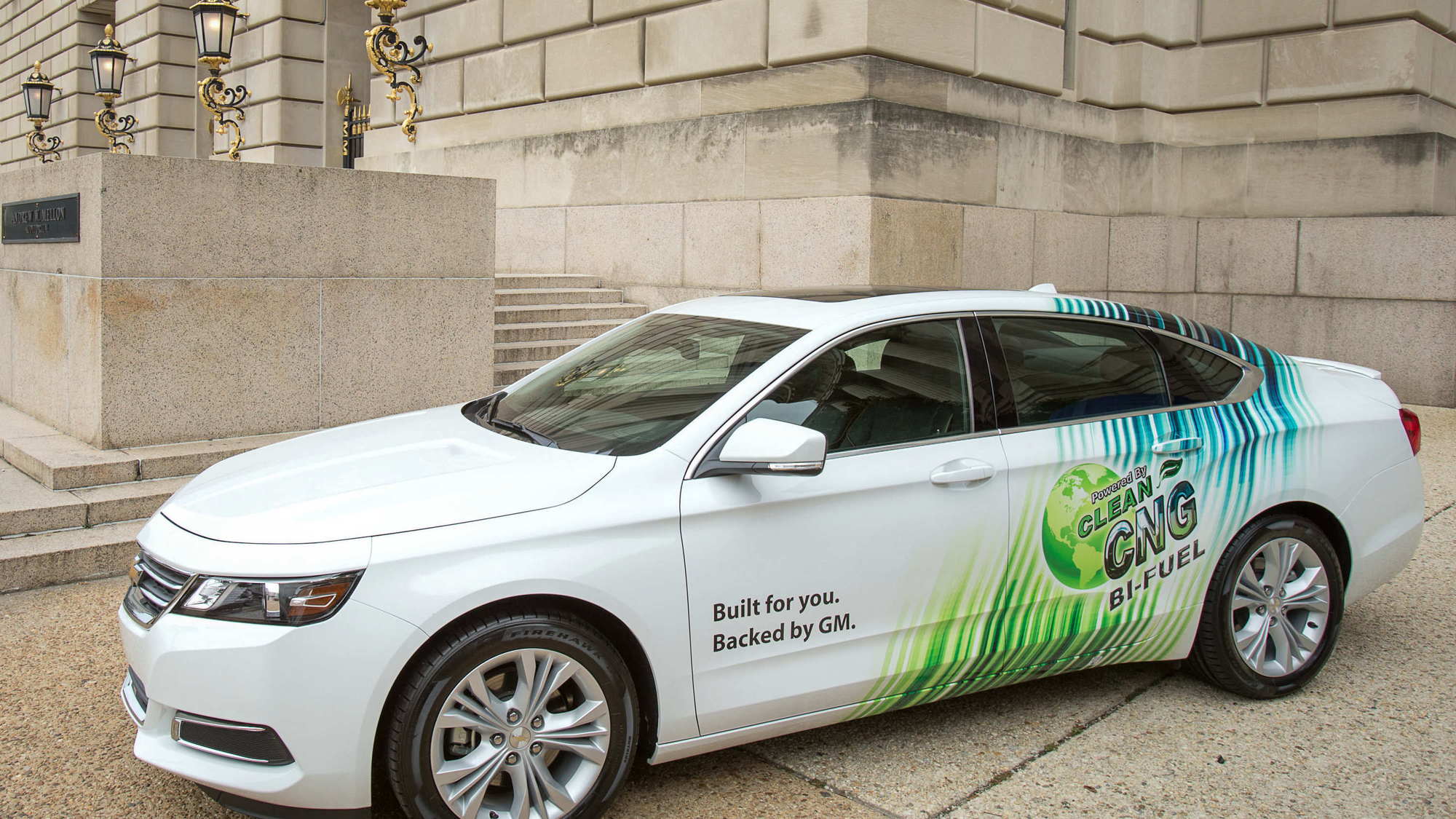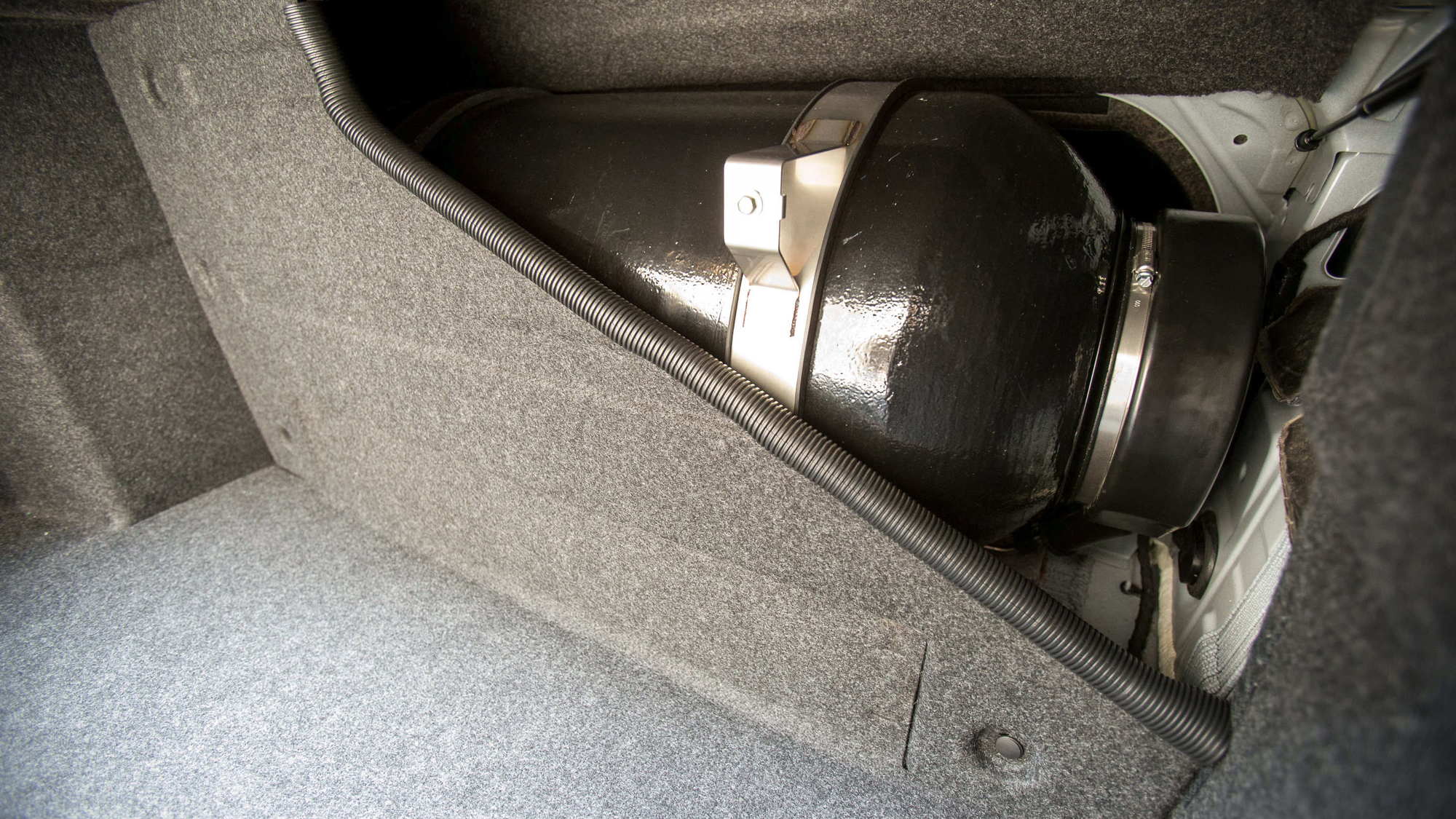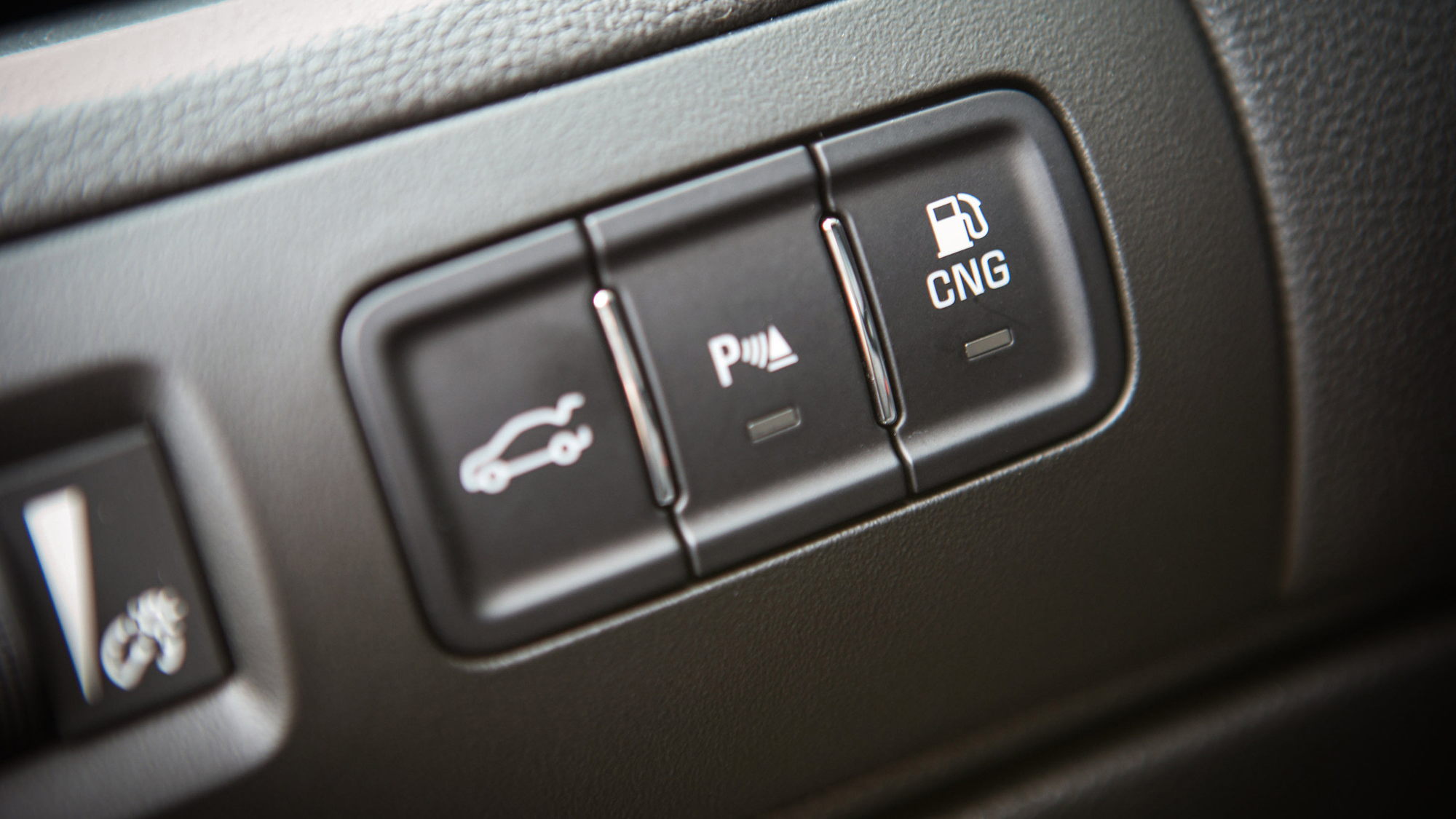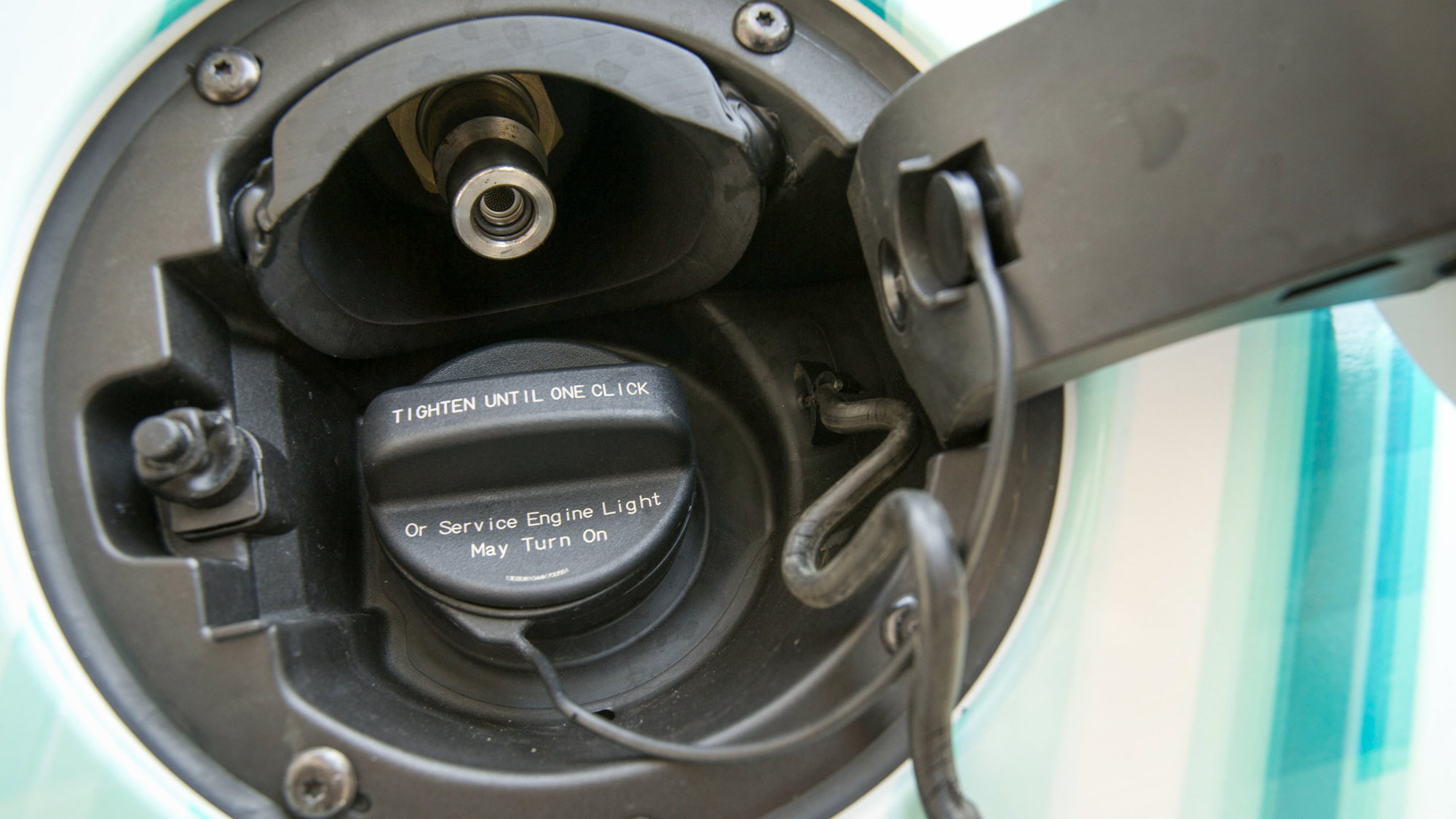As new extraction techniques such as fracking increase domestic supply of the gas, that could change--and Chevrolet will become the second manufacturer to sell a production passenger car powered by natural gas next year with a bi-fuel 2015 Chevrolet Impala.
Due next summer, the bi-fuel Impala is able to run on both compressed natural gas (CNG) and gasoline, featuring fuel tanks for both. As a result, it also features a 500-mile range, with drivers able to switch between the two fuels at the press of a button.
General Motors CEO Dan Akerson announced the car at an energy summit marking the 40th anniversary of the OPEC Oil Embargo--emphasizing the benefits of domestically-sourced fuels such as natural shale gas.
“We know that U.S. energy security won’t come from a one-off moonshot,” he said. “It will flow from our systematic investment in technology and innovation... our drive to get more from existing energy sources and renewables... our commitment to conservation... and it will be assured by fully and safely exploiting our shale gas reserves.”
The Impala--which GM says will see fewer than 1,000 deliveries in its first year, according to The Detroit News--will join just one other CNG production car on sale in the U.S, Honda's Civic Natural Gas. Honda touts the car as one of the cleanest on sale, but relatively low availability of CNG fuel means it's yet to take off as a really popular choice.
It is already possible to convert the Chevy Cruze to CNG using an aftermarket package. Another company has solved one issue of the CNG Impala--intrusion into the trunk by the CNG tank--by fitting a smaller CNG tank and effectively using it like the electric portion of a range-extended car. Such methods may be one way of cleaning up America's vehicles without requiring a huge change to the way people go about their lives.
Akerson says achieving energy security will require cooperation and productive partnerships between several parties, including energy companies, utilities, environmental groups, labor unions, universities and manufacturers--something GM is already working towards.
GM has already made a commitment to save 12 billion gallons of gasoline in its 2011-2017 model year vehicles, offsetting nearly a year of crude imports from the often politically unstable Persian Gulf.
_________________________________________


















